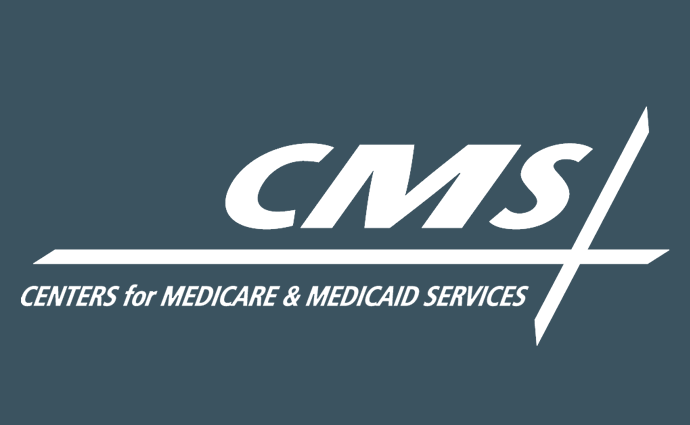CMS Proposes Medicare Payment Bump for Rehab, Psychiatric Facilities
Medicare payments are slated to increase 1.8% for inpatient rehabilitation facilities and 2.3% for inpatient psychiatric facilities, according to two proposed rules from CMS.

Source: Xtelligent Healthcare Media/Centers for Medicare & Medicaid Services
- CMS has released the proposed rules for the Inpatient Rehabilitation Facility (IRF) Prospective Payment System and the Inpatient Psychiatric Facility Prospective Payment System for fiscal year (FY) 2022.
Issued yesterday, the proposed FY 2022 IRF Prospective Payment System rule would increase Medicare payments by 1.8 percent, or $160 million, compared to the previous fiscal year.
The payment increase includes a proposed 2.2 percent bump in IRF Prospective Payment System rates based on the proposed 2.4 percent market basket update, less a 0.2 percentage point multi-factor productivity adjustment.
Additionally, the proposed rule includes an adjustment to the outlier threshold to maintain outlier payments at 3.0 percent in FY 2022. The adjustment would result in a 0.3 percentage point decrease to overall outlier payments.
CMS also proposed several changes to the IRF Quality Reporting Program in the rule.
Specifically, the agency has put forth a plan to implement a COVID-19 Vaccination Coverage among Healthcare Personnel (HCP) Measure to track vaccinations at IRFs. The measure would also monitor whether IRFs are taking steps to stop the spread of COVID-19 among their staff, reduce transmission, and help sustain IRF ability to serve patients during a public health emergency.
The proposed would also update the denominator for the Transfer of Health (TOH) Information to the Patient-Post Acute Care (PAC) quality measure by removing the location from the definition.
CMS is also seeking to address the health equity gap made worse by the ongoing COVID-19 pandemic by gathering feedback on potential policy solutions and whether expanding measure development in the IRF Quality Reporting Program could support health equity efforts.
The agency also released a call for comments on using digital quality measures in the future as well as Fast Healthcare Interoperability Resources (FHIR), data standards that enable health information exchange through application program interfaces.
Since data collection for the IFR Quality Reporting Program was interrupted by the pandemic, CMS has also said in the proposed rule that it will calculate quality measures using three quarters—Q3 2022 through Q1 2022—to refresh quality scores on the Care Compare website.
Also issued yesterday, the FY 2022 Inpatient Psychiatric Facility (IPF) Prospective Payment System rule would increase total payments to IPFs by 2.3 percent, or $90 million, relative to payments made the previous fiscal year.
For FY 2022, CMS has proposed a 2.1 percent rate increase based on a 2.3 percent market basket update, less a 0.2 percentage point productivity adjustment. Although, the agency has said it will use more recent data for the market basket and productivity adjustment if it becomes available before the final rule.
The agency also proposed a 0.2 percent overall increase in aggregate payments to IPFs in FY 2022 due to outlier threshold updates. The proposed rule would account for an additional update to the outlier threshold so that estimated outlier payments remain at 2.0 percent of total payments during the year.
Similarly, CMS is also seeking changes to the IPF Quality Reporting Program, which can reduce Medicare payments to facilities by 2.0 percent percentage points based on quality measure performance.
Also similar to the IRF Quality Reporting Program, CMS has proposed the add the COVID-19 Vaccination Coverage Among HCP measure. However, the agency wouldn’t implement the measure until the FY 2023 payment determination year.
Later, in FY 2024, the agency would also add the Follow-up After Psychiatric Hospitalization (FAPH) measure, a claims-based measure that expands the cohort of the Follow-up After Hospitalization for Mental Illness (FUH) measure. The proposed measure also expands the provider types who can follow up with patients.
The FAPH measure would replace the FUH measure, if adopted.
The proposed rule also included the elimination of three chart-abstracted measures— Alcohol Use Brief Intervention Provided or Offered and Alcohol Use Brief Intervention, Tobacco Use Treatment Provided or Offered and Tobacco Use Treatment, and Timely Transmission of Transition Record (Discharges from an Inpatient Facility to Home/Self Care or any Other Site of Care)—by FY 2024.
The removal of the three measures would reduce information collection burden by almost 750,000 hours or by approximately $30.6 million per year for IPFs, CMS stated.
The agency is also seeking in the IPF Prospective Payment System proposed rule information on policy solutions and quality reporting changes that can advance health equity.
Medicare’s fiscal year launches every year on October 1. CMS is accepting comments on the proposed rules until June 7, 2021.
